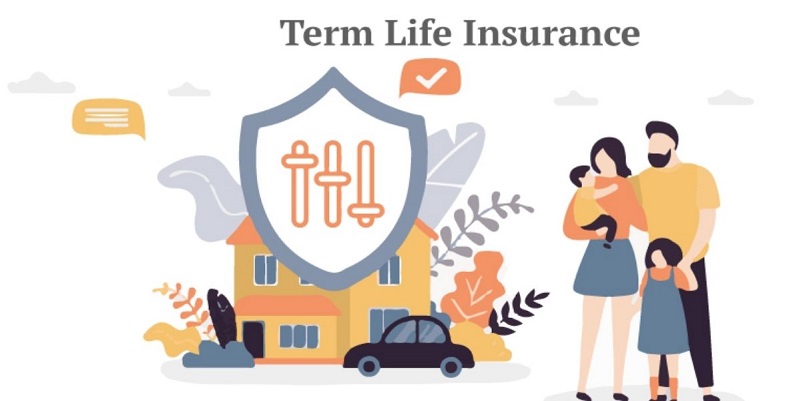Term life insurance, also known as pure life insurance, Life Insurance is a commercial product wherein the policyholder, and the life insurance company agree. The insurance company pays a lump sum amount in the form of insurance coverage to the nominee/insured in return for the premium after a specific duration or in case of the insured’s death.
The insurance is formerly much less valuable if compared to living life insurance. For most types of permanent insurance, term insurance has no monetary cost. In other words, the unique value is the insured death benefit from the policy.
General Insurance | Health Insurance | life insurance
Types of Term Life Insurance?
There are different types of term life insurance. The best option will depend on your condition.
- Level term, for level-premium, policies
- Yearly renewable term (YRT) Policies
- Decreasing term policies
Benefits of Term Life Insurance
Term life insurance is engaging to young people with children. Parents may take large quantities of coverage for logically low costs. Against the death of a parent, the critical benefit can replace lost income.. These methods are too well-suited for people who tentatively want specific amounts of life insurance. For example, the policyholder may calculate that by the time the policy stops, their survivors will no longer need extra financial assurance or will have accumulated sufficient liquid assets to self-insure.
Term Insurance Vs Permanent Insurance
The primary insurance differences between a term life insurance policy and a permanent insurance policy, such as universal life insurance, are the duration of the procedure, the accumulation of a cash value, and the cost.
Cost of premiums
Term life policies are ideal for people who need substantial coverage at below costs. Whole life clients spend more in premiums for a more limited range but have the security of understanding they stay protected for life.
- While many buyers choose the affordability of term life, they pay premiums for an extended period and have no benefit after its expiration is an unattractive feature.
- In renewal, term life insurance premiums develop with age and may become cost-prohibitive over time.
- Renewal term life premiums may be extra expensive than permanent life insurance premiums would become held at the original term life policy issue.
etmoney | hdfclife | investopedia
Availability of coverage
Except a term policy has supported the renewable policy, the company could deny renewing coverage at the end of a policy’s term if the policyholder acquired a severe sickness. Permanent insurance provides life coverage as long as premiums are paid.
Investment value
Some customers favor permanent life insurance because the policies can have an investment or savings vehicle. Each premium payment is allocated to the cash value, which may become a growth guarantee. Any plans pay dividends, which can be paid out or kept on security within the policy. Over time, the cash value growth may be enough to pay the premiums on the policy.
Best of Luck…..
